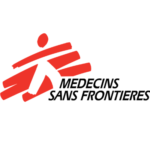Description
MSF International
Description
Title: - APH organisational model change Executive
Location: Home based or Any MSF office with some travels to Europe*
Duration: Up to completion of phase 1 of set-up (estimated 10-12 months), with possibilities of extension – part time estimated 0.7 FTEor up to 160 days
Start date: ASAP
Reporting to: International Secretary General
*By default, the successful candidate will be offered a contract in the MSF office of their country of residence at the time of application.
I. MSF INTERNATIONAL
Médecins Sans Frontières (MSF) is an international, independent, medical humanitarian organisation that delivers emergency aid to people affected by armed conflict, epidemics, healthcare exclusion and natural disasters. MSF offers assistance to people based only on need and irrespective of race, religion, gender or political affiliation.
MSF International is the legal entity that binds MSF’s 23 sections, 25 associations and other offices together. Registered in Switzerland, MSF International provides coordination, information and support to the MSF Movement, as well as implements international projects and initiatives as requested.
II. POSITION BACKGROUND
Access to Products for Healthcare (APH) is critical to MSF's Social Mission. MSF has been engaged in a wide variety of ways to improve APH in the past decades. In 2020, to address the changing external APH environment, MSF’s evolution of the past two decades, and address tensions related to internal ways of working on APH, the International Board, commissioned a project to explore the Movement's perspective on its APH work and to design a Vision and Strategy.
The outcomes of this project, a new organisational proposal for APH work in MSF, has been approved by the Executive Committee of MSF. An APH organisational model implementation executive committee (OMC) will be set up to coordinate and manage the organisational model change implementation.
III. PLACE IN THE ORGANISATION
• The Post-holder is a member of the OMC and works in close collaboration with all relevant model change internal stakeholders.
• The Post-holder’s specific tasks are defined by the OMC, as delegated by the Secretary General.
• The Post-holder reports to the Secretary General.
IV. PURPOSE OF THE POSITION
The post-holder will coordinate and support the execution of the deliverables of phase 1 of the APH Organisational Model Change plan, as defined by the OMC.
The deliverables in phase 1 will be:
1. The set-up of MSF’s new APH Structure Board
2. The design process of MSF’s Common Priorities on APH
3. The identification of the APH Structure Regional Hubs locations
4. The definition of a proposal for the branding of MSF’s work on APH
5. The design of the APH Fund
6. Transition HR principles design
7. The detailed planning of the second phase of the transition plan
V. MAIN RESPONSIBILITIES AND DELIVERABLES
The Post-holder:
• is responsible to support the inititation of the execution of specific APH Model deliverables as agreed by the OMC
• is responsible to ensure the following OMC organisational model change processes and tools are set-up and maintained :
- detailed planning and execution monitoring
- internal and external communication
- Resourcing of the execution of the deliverables
- Risks mapping
• initially coordinates the recruitment of staff working on the Organisational Model Change Implementation
VI. REQUIREMENTS
• knowledge of MSF governance and the movement’s structure essential
• Knowledge and understanding of the APH Roadmap project process, content and discussions to date essential
• Genuine interest in and commitment to the humanitarian principles and challenges of MSF
• Senior leadership and management experience in MSF or an equivalent medium to large non for profit organisation
• Solid experience in complex structural and organizational change
• Demonstrated ability to maintain focus under pressure
• Excellent communication skills
• Emotional intelligence and capacity for active listening
• Awareness of cultural differences and local contexts with regards to drivers of diversity, equity and inclusion
• Strong interpersonal skills with the ability to engage and manage stakeholders effectively, resolving issues and understanding drivers/needs
• Fluency in written and spoken English

